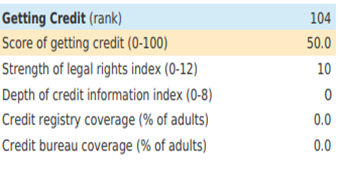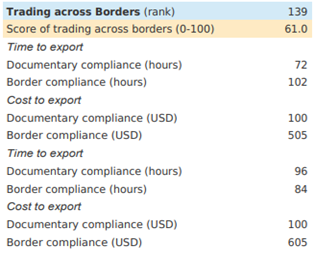Guest Article : Ease of Doing Business in Palau
- Johan Marneweck
- Oct 21, 2021
- 2 min read
Updated: Dec 7, 2021
The World Bank’s Ease of Doing Business index map is an important resource for investors and funders world-wide. Published on an annual basis, this business index map was created by leading economists at the World Bank Group.
The aim is to represent a detailed analysis of the cost, requirements and procedures required of specific types of businesses, by ranking them by country. This analysis was published by the World Bank every year from 2003 till 2019 which has as its aim to measure the cost of firms to comply with business regulations in 190 countries across the globe.

This diagram indicates the total ranking of businesses using the ease of business concept from 2003 to 2019 in a total of approximately 190 countries with lighter green representing greater ease of doing business and the darker shades of green representing greater difficulties in conducting business.
These rankings are based on 10 factors:
Beginning a business: capital, produce and time
Building permit
Buying electricity
Enrolling the business
Strength of legal right
Securing investors
Tax payment
International trading
Contract enforcement
Bankruptcy recovery
Many countries have taken it upon themselves to improve their rankings based on this data. Leaders and policy-makers within countries recognize that this is an important resource to attract potential investors and funders to stimulate their economic growth.
Currently, Palau ranks145 out of 190 countries in terms of ease of doing business. Following the annual ratings by the World bank, Palau rank dropped to 145 in 2019 from 133 in 2018.
In 2017, the Asian Development Bank conducted a Private Sector Assessment for Palau , in which various factors were identified that could be considered barriers for people wanting to start a business in Palau, including high interest rates from the local banks, complex land tenure systems and limitations for foreign investments especially within the tourism industry.
It is understandable that an island-nation would need to be protective of their resources, but the focus should be on the quality of investments within the country rather than the nationality of the investor. In addition investments should be considered in terms of environmental impacts, social impacts and short-term and long-term economic impacts as well.
Luckily, within Palau there seems to be a strong sentiment towards the concept of sustainable development. Recognizing the challenge of business development in Palau, tThe Palau Chamber of Commerce is forging partnerships within the public and private sector and providing training programs geared at business development in Palau. Their mission is to publicize, promote, and develop commercial and business opportunities.
Through a multi-faceted approach, the hope is that in time the ease of doing business in Palau will improve.
Through a multi-faceted approach, the hope is that in time the ease of doing business in Palau will improve.
What are some of the barriers you see for doing business in Palau? And in what ways can business processes and regulations be changed to ease doing business in Palau?
 |  |
 |  |
 |  |
Palau is an island and its inhabitants are subsistence agricultural people. The government has been the highest employer in Palau since after the second world war. The inhabitants cultivate various crops and fish too. Palau is one of the countries or economies under the ease of business and details of its ranking is given below.




Comments